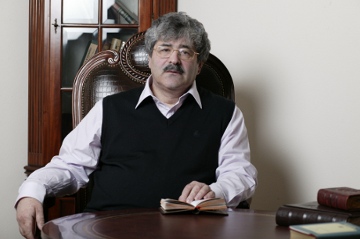
The sober remark that the atomic bomb cannot be “unborn” is attributed to M. Thatcher. At the moment, the same holds true of WikiLeaks, the internet outlet which came into being a relatively short time ago and promptly established itself as media warfare of unprecedented power. Apart from provoking fierce criticism from defenders of free speech, any attempts to put WikiLeaks under pressure now outrage much broader category of people not belonging to the realms of institutionalized politics, mass media, or human rights advocacy. Recently I overheard a conversation at a hotel counter in Paris which seemed to epitomize the public reaction no longer limited to common discontent at administrations' invasiveness. Complaining over the suspension of all payments to WikiLeaks by Visa and Mastercard, someone said literally: “They will end up seeing their networks paralyzed by hackers and create problems for just about everybody. Making lots of money on us, must they also play political games?”.
The plans to strangle WikiLeaks are naïve considering that numbers of prominent public figures are readily giving their support to the site, offering to stand as surety to have WikiLeaks founder Julian Assange released, etc. WikiLeaks claims to be on friendly terms with global media flagships like the New York Times and the Guardian which replicate and discuss at length the site's revelations regardless of the embarrassment they cause to Washington. Great Britain's Independent nothing less than wrote that “whatever that judgment turns out to be, we will never unlearn or unknow the great truths Julian Assange has brought us», citing as a vivid example the case where the US troops blew up an Afghan village called Azizabad, and killed 95 people, 50 of them children.
Politicizing the Assange case by throwing in the espionage charges was by all means a miscalculated move. Explainably, Washington is worried that hearings in a Swedish court would provide Assange with a unique opportunity to broadcast previously unreleased information as well as to expose the shakiness of the accusations he is facing. Assange's defenders have already spread the word that initially the Swedish prosecutor dismissed sex crime charges against him as patently absurd and that the case was resurrected only due to the influential political forces' intervention.
The espionage charges will not silence WikiLeaks even if they lead to the neutralization of Assange. Behind the bars, he will probably be asked questions about the mysterious circumstances related to the existence of the “explosive” outlet. The WikiLeaks version is that the site is kept afloat by a small team of enthusiasts plus some 800 volunteers, while the ranks of its supporters actually count over 70,000 people. WikiLeaks draws information from anonymous sources and relies heavily on a variety of technologies including sophisticated cryptography. Hypothetically, WikiLeaks comprises a complex network of at least 750 hidden domains. Former WikiLeaks German representative Daniel Schmitt (real name Daniel Domscheit-Berg) who left the site after slamming it over lack of transparency and professionalism admitted in an interview to Der Spiegel that at a certain point even he was left clueless about who made decisions and who was in charged within WikiLeaks.
Indeed, “Who?” is an intriguing question in the context. It was clear from the outset that the visible stratum of the WikiLeaks management was doomed to martyrdom in the name of freedom of speech. When I asked my Vis-a-Vis the World show guest, a Russian parliamentarian and a well-known political analyst, the direct question “What is WikiLeaks?”, he expressed two seemingly irreconcilable views in response. He opined that WikiLeaks was the world government's declaration of war against national governments, but went on to assert that we were witnessing the rise of the global civil society. The logic behind the contradiction may be that one of the two phenomena can be disguised as the other.
Johann Hari must be credited with grasping the key aspect of the matter when he wrote in The Independent that “Most people in the US and Britain oppose these policies. We are better than our politicians”. Inadvertently, Hari echoed Russian religious and political philosopher I. Ilyin - he argued in the aftermath of World War II that a crisis of “formal democracy” loomed on the horizon. Due to profound reasons, we will be hearing a lot about Julian Assange and WikiLeaks in the nearest future and, moreover, the story may be inching towards an unexpected finale.
read more in our Telegram-channel https://t.me/The_International_Affairs

 14:00 12.12.2010 •
14:00 12.12.2010 •






















